We’re watching a lot of TV these days. Thanks to a perfect storm of disease, natural disaster, and political turmoil, most North Americans are cut off from simple pleasures like a Saturday night dinner and movie at a theater. In many places, it’s not even safe to have friends for drinks in your living room. And so, according to data from Comcast and online entertainment providers, people are now watching as much TV on the weekdays as they once only did on the weekends. Time spent on streaming services has doubled.
We at the Greater Good Science Center are not going to tell you to watch less TV, because we’re in the same boat as you. And we’ve discovered lots of movies that can take us away from our troubles for a couple of hours, as well as films that can help make life at home more meaningful. Here are 10 films watched by our staff and writers that we hope will make you feel better about our situation, and perhaps even provide some lessons for how to navigate this tricky time.
A movie that will help us be excellent to each other: Bill & Ted Face the Music
Beyond its dad-joke, eye-rolling silliness, Bill & Ted Face the Music bravely conveys themes of personal accountability and social inclusion, backing up its timeless motto: “Be excellent to each other.”
Endearingly aged San Dimas slacker dudes Bill S. Preston (played by Alex Winter) and Theodore Logan (Keanu Reeves), with heroic bumbling help from their lookalike, hipster daughters, Thea and Billie, must save the universe by writing the song that will “unite the world.” Through a series of illogical time-travels that plop them in front of increasingly absurd versions of their future, Bill and Ted discover the lifelong benefits of honest and virtuous choices. At the same time, Thea and Billie fly through time, charming musical geniuses into joining the backup band. Along the way, the movie normalizes a bunch of prosocial endeavors, like couples therapy, sincerely apologizing, welcoming the evil robot assassin who happens to also be socially awkward into the posse, and earnestly reconciling a grudge with Death.
It’s a silly movie, but also inconspicuously instructive: for humanity to thrive, it’s important to say “I’m sorry,” “Thank you,” and “I love you”—and where possible, play music together! – Emiliana Simon-Thomas
A movie that’ll teach you to not judge a book by its cover: Cuties
Cuties, by French director Maïmouna Doucouré, is one of the more controversial new movies of the year.
Amy is an eleven-year-old, Muslim immigrant living in Paris with her mother and siblings. Finding a way to fit in at school isn’t easy for Amy—and her life is even further complicated by the fact that her father is taking a second wife and will move her in with their family after the wedding.
Amy’s life starts to shift when Amy sees Angie, another tween, in the laundry room of her building. Angie has cooler clothes, as well as dance moves Amy would never think of having. When Angie bends over the ironing board to straighten her long, dark hair, we see Amy struggle with the texture of her own hair. She uses an iron to try to flatten it—and so burns a patch off her head.
Angie and her mean-girl friends take Amy in, at first using her to video them dancing. But it doesn’t take long for Amy to move from clumsily trying to be like the other girls to realizing that she is a talented dancer. That’s when the trouble starts, as Amy discovers that sexy moves get attention online and off.
Cuties was controversial before it was released in September, because the marketing team at Netflix chose to use sexualized images of young girls to advertise it. Online critics (who hadn’t yet seen the film) drove Doucouré off social media, accusing her of being a pedophile who created a movie that sexualizes little girls. That is NOT what Cuties is, at all. Instead, it’s an insightful story about what it’s like to be a young girl living through the age of all-media, all-the-time. – Andrea King Collier
A film about how we help each other carry burdens: Driveways
The protagonist of the understated film Driveways is eight years old. Cody goes on a trip with his mom, Kathy, to pack up the house of his recently deceased aunt, April. It’s clear from the start that it won’t be easy. They can’t fully open the front door because April’s home is dangerously cluttered. Cody’s questions about his aunt make Kathy reflect on how much she didn’t know about her older sister. “She was smart, quiet. I was the wild one,” recalls Kathy of her childhood memories of April.
Although the neighborhood kids come by the house to introduce themselves, Cody isn’t interested in playing with them. Like his aunt, Cody is bookish and introverted. Unexpectedly, he is drawn to his elder neighbor, Del, a war veteran and widower, who lives alone in the home just across the driveway. Despite a bit of a rocky start, their relationship grows because of small gestures of kindness. Over the course of shared moments of everyday life—mowing the lawn, eating popcorn, watching Wheel of Fortune, visiting the library—Cody and Del become trusted companions. Cody’s curiosity about Del’s late wife, Vera, helps him to tenderly examine and express what Vera’s presence meant in his life and how her absence has affected him.
Driveways studies how learning to cope with the loss of relationships can help create new, meaningful ones. Because the fulfillment of this essential psychological need is so strong, these ties can be forged between people who are seemingly very different from each other. Everyone must carry something heavy, from time and time—and Driveways highlights how leaning on each other can lighten our burdens. – Maryam Abdullah
A movie that’ll inspire you to stay in the game: Eurovision Song Contest: The Story of Fire Saga
This musical comedy follows best friends Lars Erickssong (Will Ferrell) and Sigrit Ericksdóttir (Rachel McAdams) as they compete in the Eurovision Song Contest.
If you’re not familiar with Eurovision, it’s basically the Olympics for music: members of the European Broadcasting Union each send national teams to compete to take home the title of best performers in Europe. Iceland has never won—but Lars and Sigrit persist against the odds, proving themselves to be feisty even in the face of mockery and prejudice.
We’re just as likely to burst out laughing at the film’s repeated references to Iceland’s folklore about elves (don’t underestimate their deadliness) as we are to shed tears watching Lars and Sigrit outperform expectations in the contest and prove that scrappy Iceland can more than hold its own against the contest’s heavyweights.
Ultimately, Fire Saga is about believing in your own capacity to achieve your dreams. That may sound awfully cookie cutter—don’t we have a million underdog inspirational flicks?—but this one manages to pull it off with gut-busting comedy, catchy tunes, and heartfelt performances. – Zaid Jilani
A movie that will inspire you to protect the Constitution: The Fight
The Black Panther defends Wakanda and Batman protects Gotham City, but who defends the U.S. Constitution? There are many protectors of our civil liberties, and The Fight highlights one of them: The American Civil Liberties Union (ACLU).
The documentary focuses on a segment of the ACLU’s century-long work of defending civil rights, centering on cases tried during the Trump Administration. If vibranium is what makes Wakanda special, we might likewise consider the equal-rights protections under the U.S. Constitution and accompanying laws as one of the things that makes the U.S. special. Through vivid scenes and personal accounts, The Fight poses the question in the psyche of the viewer: Does the U.S. government have the right to block equal protection under the law for some groups, because it thinks it’s the right thing to do?
The heroic ACLU attorneys featured in the documentary (Lee Gelernt, Brigitte Amiri, Dale Ho, Josh Block, and Chase Strangio), have a very clear answer to this question, and with great sacrifice work to defend the rights of their clients. Those clients include detained immigrant parents abruptly and clandestinely separated from their children, as well as a transgender Petty Officer with 11 years in the U.S. military who is fearful he will no longer be able to serve his country. You will laugh, you might cry, but hopefully you will be inspired to also do your part as a defender of civil liberties, by voting. – Shanna Brewton-Tiayon
A movie that’ll make you think: I’m Thinking of Ending Things
When I got to the end of Charlie Kaufman’s I’m Thinking of Ending Things, I had to ask myself: What the heck was that about? After I watched it a second time, I came to understand a few things about this beautiful, unsettling, complex, melancholy film.
To begin, I don’t believe it’s a spoiler to reveal that the movie is a character study, and that it takes place entirely inside that one achingly lonely mind. But what’s the story about? In my view, I’m Thinking of Ending Things is really about goodness, but what makes this story a tragedy is that the goodness goes unseen and unappreciated by others.
At one point, his girlfriend (Jessie Buckley) praises Jake (Jesse Plemons) for taking care of his dying mother. “I’m glad to hear you say that,” he says. “That makes me feel better. Sometimes, it feels like no one sees the good things you do. You’re just alone.” She whispers to him, “I see it.”
However, this wonderful girlfriend doesn’t exist outside of his head, and the tragedy is that Jake needed to invent someone to see his very real goodness. She is variously named Lucy, Louisa, Lucia, and Ames; she’s sometimes a physicist, sometimes a painter; once a poet, again a film critic. When Jake’s elderly parents need their pain recognized, she becomes a gerontologist.
Throughout all these metamorphoses, she stays smart, grounded, and funny. She’s not a doormat or a manic pixie dream girl, as we might expect from decades of Hollywood movies. She’s something new to cinema: the imaginary woman who is wiser and realer than the shadow of a man who imagines her. She becomes what Jake could have been, if he’d been luckier. The movie left me wondering what goodness I might be missing, in the people I encounter. I could be missing a lot of bad, too; I’m Thinking of Ending Things doesn’t shy away from how much social invisibility hurts Jake. He’s not a bad man, but he is a damaged one.
By the end, we can see him whole, good and bad. It’s confusing, that karmic mixture, because we like to see clear-cut heroes and villains in our stories. When we don’t, it’s ourselves we begin to see, good and bad. – Jeremy Adam Smith
A movie to help you see the good in trouble: John Lewis: Good Trouble
John Lewis: Good Trouble recounts the life of the civil rights icon and congressman, who was famously beaten and jailed in his quest for racial justice. What makes this movie more than a simple lesson about the civil rights movement is how it captures John Lewis’s remarkable personality and spirit. One powerful scene shows Lewis recounting his participation in the first sit-in at the Woolworth’s lunch counter in Nashville, which, at that time, didn’t serve African Americans. Watching the hateful, violent way he and other protesters were treated makes it hard to imagine how this young man, with so much passion for his cause, could have maintained love in his heart.
Luckily, we don’t just get John Lewis the saint, but also get a taste of his humor, playfulness, and humility. There are wonderful scenes of him dancing around his congressional staff or navigating his rock star status with humor that just warm the heart. Even those who disagreed with him politically couldn’t help but admire him. The movie humanizes John Lewis—who died in July of this year—while still illustrating his unwavering commitment to getting into “good trouble,” as he liked to say. The movie is both a testament to what one devoted person can do to heal the world and a call for us all to do our part. – Jill Suttie
A movie to help you feel better about growing awkwardly: The King of Staten Island
The King of Staten Island (released digitally in June 2020) is comedian Pete Davidson’s tragic, semi-autobiographical story. Davidson plays Scott, an unemployed 24-year-old stoner with mental health issues living in his mother’s home. Like Davidson, Scott lost his firefighter father at a young age and never recovered from the loss.
Scott spends his days on the couch watching SpongeBob, playing video games in his friend’s basement, and practicing tattoo art on his friends’ bodies. When Scott’s mom (played by Marisa Tomei) begins dating—fatefully pairing with another firefighter (played by Bill Burr)—she presses Scott to move out. With no place to go, Scott ends up at the fire station, trading odd jobs for a place to stay—which triggers a confrontation with his childhood trauma.
Spoiler alert—Scott grows from the experience, but the growth is awkward and sometimes gross. Movies like The King of Staten Island help us develop appreciation for gracelessness, and they motivate us to find the funny in the pain. – Yael Schonbrun
A movie about pigeons that will inspire awe: The Pigeon Kings
The Pigeon Kings tells the story of a subculture of Black and Latino men in the South Central Los Angeles area who raise, breed, and compete pigeons. But not just any pigeons. These are Birmingham Roller pigeons, who are known for acrobatic feats like performing multiple somersaults in unison as they barrel toward the ground at high speed.
The documentary opens up with a scene of men standing around, their heads turned toward the sky, completely enthralled with the in-air acrobatics and beauty of the birds. The delight of watching the birds fly is only surpassed by the owner of the birds getting a high score for his birds’ performance. The film is Black and brown male joy at its finest.
The documentary highlights their commitment, mastery, and sense of community as urban pigeon fanciers. However, the complexities and challenges of the Black male experience aren’t forgotten, serving as backdrop to this pigeon love story.
If you’re looking to be amused, captivated, and inspired, this might be the documentary for you. – Shanna Brewton-Tiayon
A movie to help you bridge differences: Purple Mountains
Pro snowboarder Jeremy Jones wants to save the planet, and you can hardly blame him.
“The thought of not having winter as we know it breaks my heart,” he says during a legislative testimony in the documentary Purple Mountains, which tracks his quest to have conversations with other outdoors enthusiasts who aren’t as supportive of reforms aimed at combating climate change.
Some people are more receptive to conversation than others. “People like you can ski and play on the snow while all of us work our asses off,” one voicemail tells him. “So that’s why your organization is not going to be around in twenty years.”
Others, however, are at least willing to sit down with him and hear him out. “I have no doubt that climate is changing. That’s a no-brainer,” admits Danny Kough, a rock miner who accompanies Jones on a trek outdoors. Purple Mountains shows us that even in an America that is as polarized as it is today, constructive dialogue is sometimes possible. – Zaid Jilani





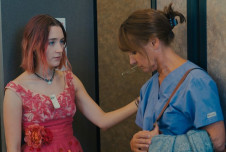
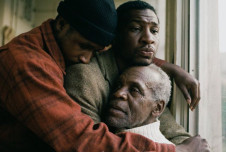
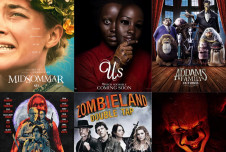
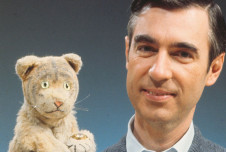
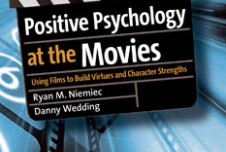
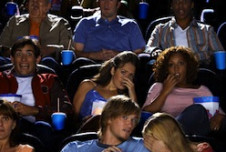
Comments